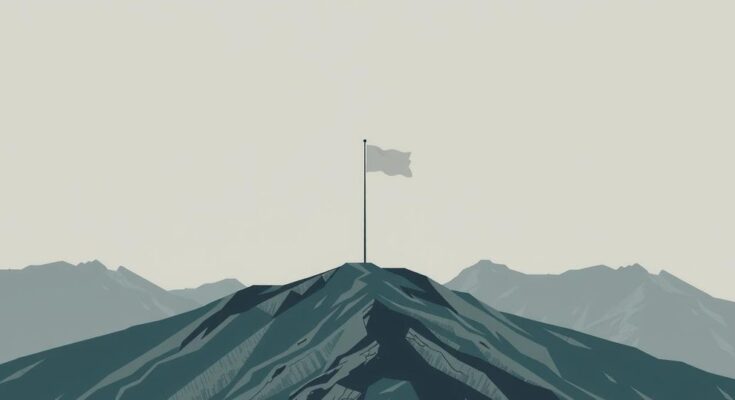Rebels in the Democratic Republic of Congo have claimed the seizure of Goma, prompting a military warning for government forces to disarm. The incursion coincided with peacekeeping casualties and escalating conflict with Rwanda’s alleged involvement in supporting the rebellion. The situation has fostered widespread panic among civilians and raised significant humanitarian concerns.
Congolese rebels have declared the capture of the pivotal city of Goma in the Democratic Republic of Congo (DRC). The leader of the M23 rebel group warned government forces to disarm by 3 a.m. on Sunday. This escalation follows recent clashes resulting in the deaths of 13 peacekeepers, according to United Nations reports.
Rebel forces along with Rwandan allies have reportedly entered Goma, rendering the airport non-operational. Bintu Keita, the UN’s special representative in the DRC, noted that the M23 has caused widespread panic among civilians as they advanced into the Munigi quarter of Goma.
Goma, with a population of approximately two million, serves as a crucial hub for security and humanitarian activities in the region. The M23, primarily composed of ethnic Tutsis, originated from dissidents in the Congolese military over a decade ago. It is one among numerous armed factions vying for control in the resource-rich eastern province, amplifying an ongoing humanitarian crisis.
The DRC has accused Rwanda of supporting the M23 rebellion, resulting in severed diplomatic relations. Although Rwanda denies these accusations, it acknowledges having military presence in eastern Congo due to security concerns arising from the increase of Congolese forces near its borders. A Congolese military official stated, “Rwanda is trying to get in by all means, but we are holding firm.”
In response to the escalating conflict, the DRC has recalled diplomats from Rwanda and has demanded the end of Rwandan diplomatic operations in Kinshasa. Meetings of the UN Security Council have been convened to address the violence, with France urging Rwanda to withdraw its troops from DRC territory and Britain calling for the protection of peacekeepers from M23 attacks.
This recent turmoil has been exacerbated by combat incidents, including the death of a Congolese military governor and significant casualties among peacekeeping forces, particularly from South Africa, Malawi, and Uruguay. The region has faced decades of conflict driven by competition among various militias, resulting in substantial losses and displacements over the years.
The United Nations peacekeeping mission, established over twenty years ago, currently maintains a force of approximately 14,000 personnel in the DRC, amid ongoing instability and humanitarian challenges.
The ongoing conflict in the Democratic Republic of Congo, especially in its eastern regions, involves more than 100 armed groups fighting for control over land and natural resources. The M23 group, comprising mostly ethnic Tutsis who separated from the Congolese army, has emerged as a prominent player in the violence-ridden landscape. The situation has intensified, with accusations against neighboring Rwanda for its alleged support of the M23, prompting diplomatic strains between the two countries. The deteriorating security conditions have resulted in a significant humanitarian crisis, leading to widespread casualties and displacement of millions.
The situation in Goma represents a critical juncture in the ongoing conflict within the Democratic Republic of Congo, highlighting the interplay between local militias and external influences. The capture of Goma by rebels raises severe humanitarian concerns for its residents and poses challenges for international peacekeeping efforts. Continuous diplomatic engagement and effective conflict resolution strategies are imperative to address the escalating violence and stabilize the region.
Original Source: www.moreradio.online




